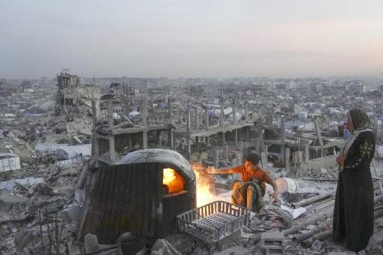UN Agencies Working On Guidelines For Schools Reopening Safely After COVID-19
May 06, 2020 14:31
(Image source from: benjaminmaths.com)
The COVID-19 outbreak has taken a hit on Educational Institutions and they are not operating ever since. This is impacting children’s wellbeing and education.
According to what the UN agencies have estimated, around 154 crore students across the globe are affected and these agencies are working on guidelines to re-open schools.
UNESCO, UNICEF, World Bank, and the World Food Programme have collectively formed guidelines considering children’s best interest and public health, benefits and risks to education have been looked at. Having said, the decision to reopen schools will be left to the center of national and local authorities.
Authorities have noticed that they have not been able to measure the impact of closing schools on disease transmission rates. However, they can see how this decision of closing schools has affected the safety and learning of children.
In the long run, what children could have gained through education seems to be at risk of being lost and this is not a good sign. Who is most affected among children? The ones who are dependent on schools for their education, health, safety, and nutrition.
Since schools go the extra mile of providing nutrition, health, hygiene, mental and psychological services besides teaching kids to read, write, and count. It is a bad plight to have schools closed for so long.
According to UNESCO representative, the guidelines will talk about their decision-making on schools re-opening, they would support national preparations and give guidance on implementing the process related to public health and education planning.
Further, she said, "It is designed to be a flexible tool that can be adapted to each context and updated as the situation changes. The guidelines outline six key priorities assess the readiness of those schools and inform planning."
As the discussion between UNESCO, UNICEF and WFP is not on agreeable terms with each other yet, these authorities have requested the Government to think over the benefits of classroom-based instruction instead or remote learning, risk factors that will come along with the decision of reopening schools and would there be a risk of the virus spreading with full attendance in school.
The Ministry of Human Resource Development is working on providing safety guidelines when classroom training begins. Children might be surprised when they return to school or colleges when they see a change in their seating matrix, staggered classes, library rules, and redone canteens.
After the government announced a countrywide shutdown to stop COVID-19 from spreading, majority of schools and universities are closed since then.
By Neha Makhija














